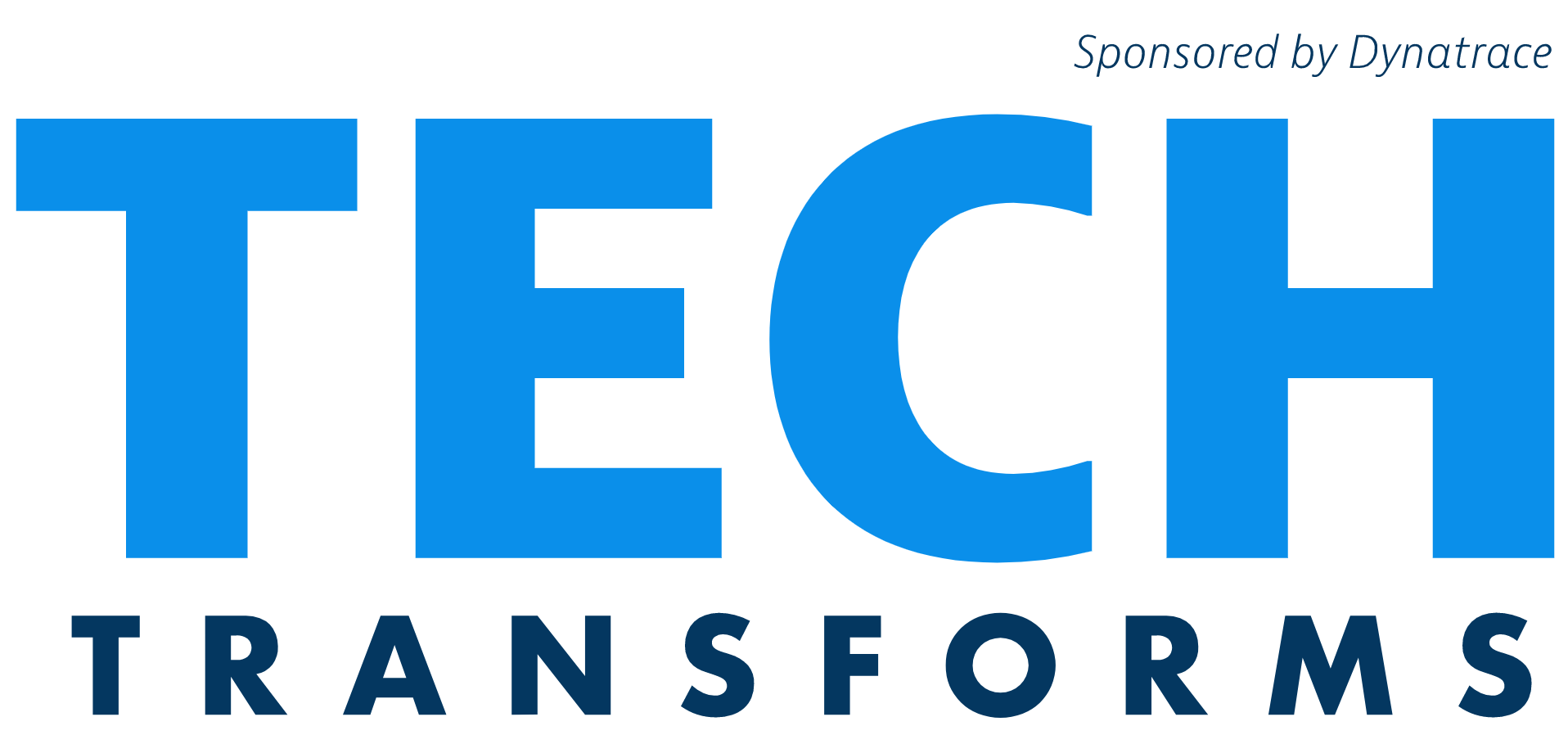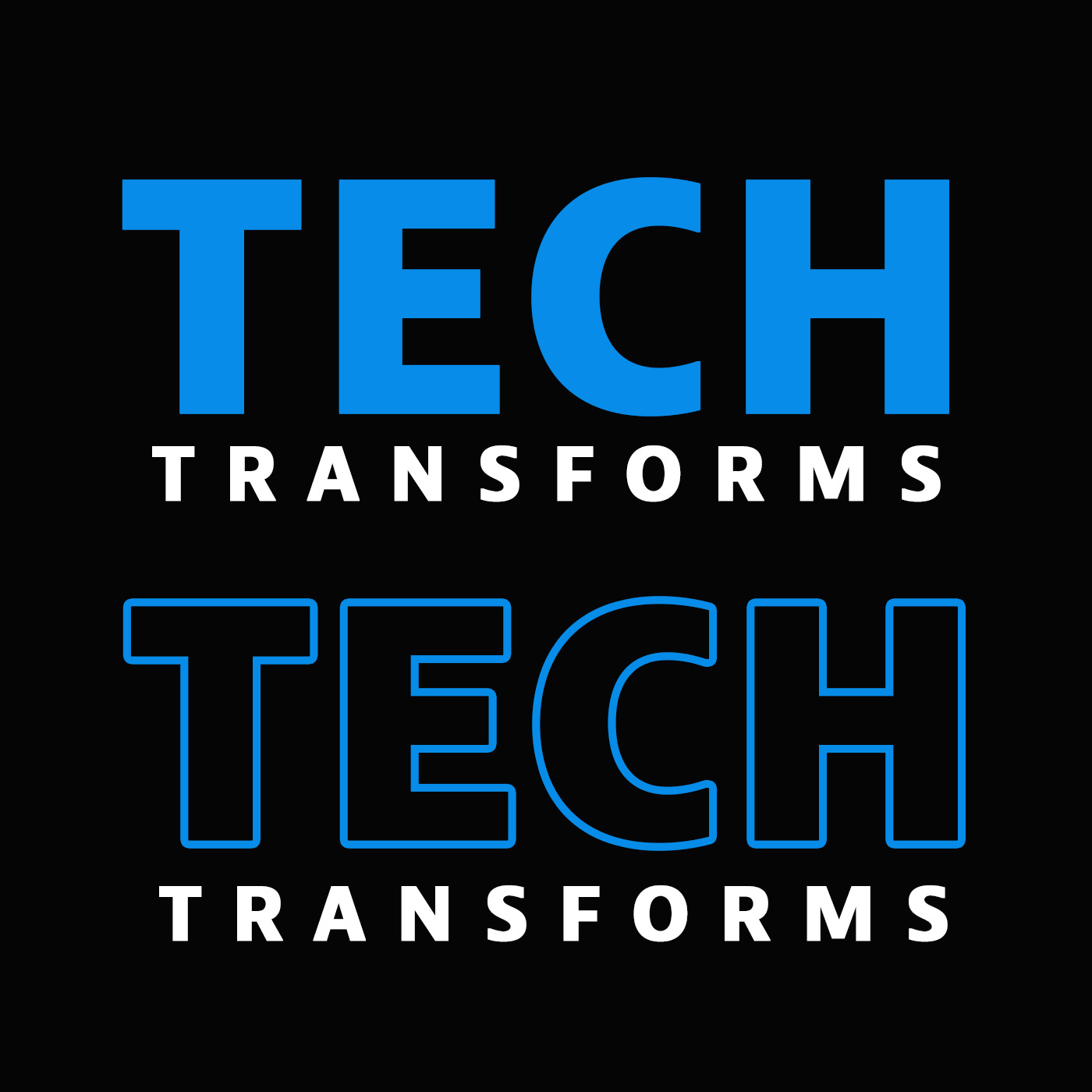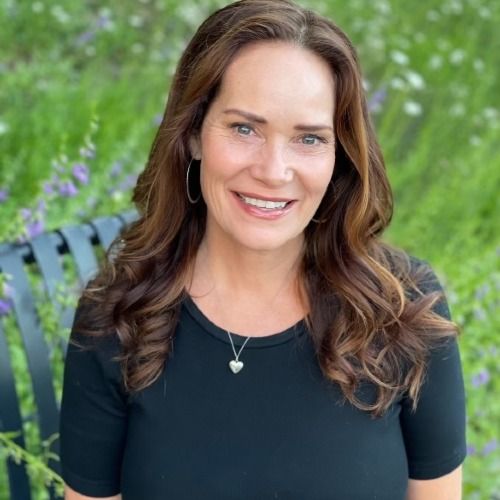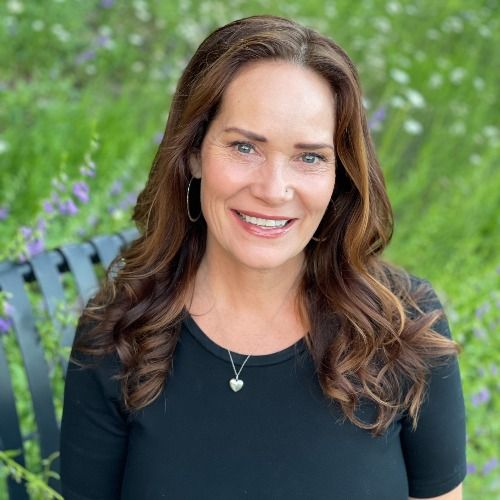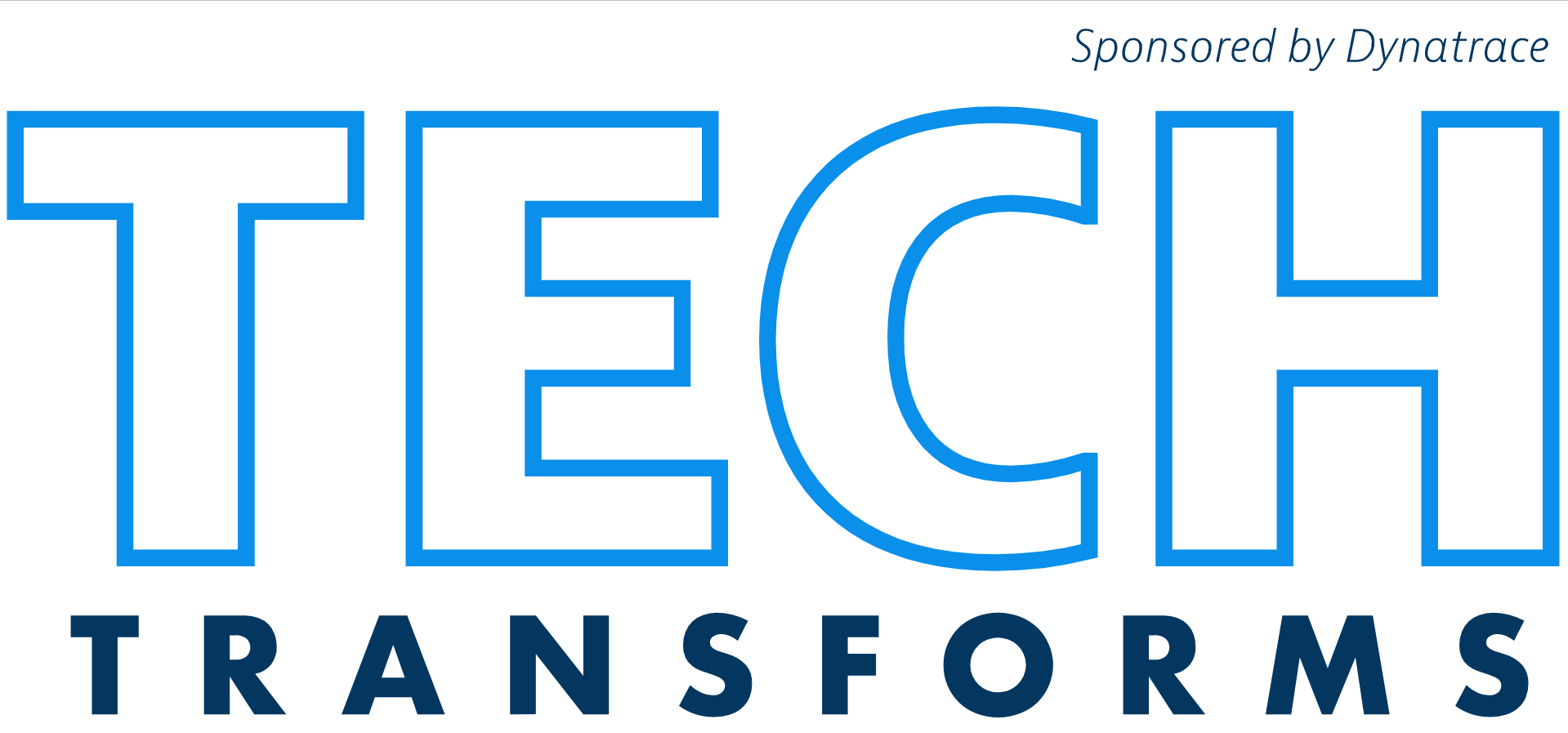Episode 43
The Power of Partnerships: Bringing Speed and Security with Amy Belcher
Amy Belcher, Independent Software Vender Sales and Go To Market Leader at Amazon Web Services joins Tech Transforms to talk about her team's mission to satisfy compliance for agencies across the globe. With speed to deployment, flexibility and security, Amy and her team support organizations maximizing local control and global reach.
Episode Table of Contents
- [00:52] The Importance of Industry Partnerships
- [08:19] Productive and Creative Partnerships
- [18:24] The Depth of Partnerships
- Episode Links and Resources
Episode Links and Resources
Transcript
Carolyn:
Me too, me too. And today we get to talk to someone who has been recognized as one of the top 100 most influential channel women by CRN, Amy Belcher, independent software vendor, sales and go-to-market leader for Worldwide Public Sector at Amazon Web Services. Today, we're going to get Amy's insight on the importance of industry partnerships and trends within the public sector. Welcome to Tech Transforms, Amy.
Amy:
Thank you so much, Carolyn and Mark. Pleasure to be here.
Mark:
Good to see you again, Amy.
Amy:
Likewise.
Mark:
Did we get your title right? Because that's a mouthful?
Amy:
You did, and I'm super impressed by that.
Carolyn:
It is a mouthful. And I was reading through your bio, you've done a lot of impressive things. So today I want to talk, let's actually start with that and can you talk to us about your role at AWS?
Amy:
Yeah, Yeah. So again, I lead a public sector partner team focused on supporting independent software vendors, ISVs, or we call software partners. In my role, our goal and my team's goal is to solve customer problems in the public sector by working with software partners. So we work with partners who service government agencies, nonprofit, nonprofit health organizations, and education. So here's one real-life example. When COVID hit, healthcare workers and researchers needed a way to access COVID information. Think about mask, personal protection equipment, or PPE, and the deliveries would come and we had to track where they would come from, et cetera. But as COVID evolved, public sector needed a way to figure out the vaccine information and availability, particularly researchers and medical facilities.
The major speed bump there was accessing clinical health data in an open and accessible but secure way. So our software partner, Palantir, worked with the National Health Institute and N3C, which is the National COVID Cohort Collaborative, and together they develop the N3C data in cloud. This tool is built on AWS. This is a secure platform that harmonizes clinical data by contributing members, and it's stored in the cloud. So what that means for us is it's the largest COVID-19 platform in the world, tracks more than 1,000 researchers and 180 plus COVID projects in one centralized global database. So that's an example of the type of work that my team and I do at AWS, working with software partners.
Mark:
Well, I never even thought of that. So that's practical real use that's taking place. I think of it completely different. And I think of how you guys are using different technologies to help customers from an IT perspective.
Amy:
Mm-hmm.
Mark:
I guess that's kind of my preconceived notion of, "I work for a software company." So I didn't even think about the practical real-life applications that your job does. So that's interesting. I had no idea.
Carolyn:
As you were talking Amy, I'm just thinking about all the logistics and that's just one example, I'm sure there are hundreds just to do with COVID, and just to do with getting the vaccine out. Different applications that were needed, making sure that this site is up and running, and as it should be, and people can access what they need to when, the complexity of it all. We don't see that as end users, right?
Amy:
Right.
Carolyn:
We go to the website and say, "Yes, send me my test kits."
Amy:
That's right.
Mark:
So Amy, jumping back to the IT side of that, how is AWS helping to propel or advance technology in the public sector?
Amy:
Yeah, we work with and enable and coach partners to work with governments and public sector entities around the world, ultimately increasing their business and of course increasing AWS's business, but driving customer problems and solutions. So one of the most frequently asked questions I get is how do we, the software partners, become certified to sell the governments around the world?
Mark:
Yeah.
Amy:
And so this is a hot topic, especially in a post-COVID era. So for context, when companies want to work with governments, depending on the government, there can be regulations that they need to meet in areas like cyber security or data safety.
Mark:
Do you mean like FedRAMP?
Amy:
No, exactly. That was a great segue. So a partner looking to sell to the US Department of Defense need to be FedRAMP certified.
Mark:
Yeah.
Amy:
So for those in the audience who may not be familiar, that's the Federal Risk and Authorization Management Program that basically says there's a standardized approach, that secure approach that the solution and the software is authorized for continuous monitoring for cloud products and solution. This is where my team comes in. No, some of those regulations like FedRAMP can take more than two years for a company to earn. And so my team, it's called the Authority to Operate team, works with partners who help other software partners earn their government certifications like FedRAMP. So InfusionPoints is a partner we work with in our ATO program, who help ASVs like VMware become FedRAMP certified. Infusion Points drives sales engagements and scale with our ISVs, not just to get them FedRAMP certified, but it's about the post-certification too. How do we help them scale their business post-certification.
Since we've been working with InfusionPoints, they have experienced more growth as a result of their ATO related leads and things like FedRAMP than anything in the prior 14 years since they've been in business. So my team helps enable partners working through other partners as trusted advisors and look to certify their solutions.
Carolyn:
That's fantastic.
Mark:
's those different [inaudible:Amy:
Right.
Mark:
Yeah.
Carolyn:
Those certifications. I mean, not that I do them, I just hear the talk on the side, just like you said, FedRAMP can take, and that's FedRAMP Low can take two years, right?
Amy:
Right.
Carolyn:
And then there's all these other certifications on top of it, these ATOs that have to be done. So that's fantastic that you guys help industry. So you've seen a lot of technology trends, changes throughout your career. What would you say the big ones, and specifically in public sector, are right now that we need to focus on?
Amy:
Yeah, top three, top three, if I had to narrow it to three, would be speed, so again, that's in part because of COVID. Governments are really acting like startups now. They're asking for new technology to be built, secured and deployed faster than ever. So as a result of that, we're working with software partners within AWS to experiment and deploy quickly and reliably at scale. So that's number one. Number two is flexibility.
Carolyn:
Speed to deployment.
Amy:
Bingo.
Carolyn:
Yep.
Amy:
Exactly, speed to deployment. Number two is flexibility. So the world as a whole has changed, especially in the last couple of years. We need to be productive and creative from anytime, anywhere. So many organizations have implemented a hybrid work environment, and that impacts public sector customers, our software partners and AWS. So right now, I'm working, you can probably see, in my home office, but next week, next week I'll be on an airplane. I'll be working for my hotel, I'll be in partner offices. I need to be able to access my AWS information, our VPN, quickly and flexibly so that I can do my job. But most important, and this is number three, is securely. So customers are asking to secure clouds with local control and global reach. And AWS is architected to be the most flexible and secure cloud computing environment available today.
Our core infrastructure is built to satisfy security requirements for military, global banks and other high sensitivity organizations. We support 98 security standards and compliance certifications, including HIPAA, FedRAMP and GDPR, helping to satisfy compliance requirements for virtually every regulatory agency across the globe. So it's speed, flexibility, and security, I'd say, are the top three trends.
Mark:
Yeah.
Carolyn:
I love it. I love it when we do the bite size. I want to go back to the flexibility, and this is without going down too much of a rabbit hole. You said we've changed in the last couple of years, drastically, how we work and government too. Government, remember, they used to say we could never work from home, we could never, then we had to. So I'm curious, do you think that we'll go back to the old ways or do you think these changes, the horse is out of the barn? Yeah, horse is out of the barn?
Amy:
Yeah.
Mark:
Hey Amy, do you see these as AWS things or just general, the public sector trends?
Amy:
I think these are general technology trends in the public sector.
Mark:
Yeah.
Amy:
AWS is leading with those trends to make sure that we're providing solutions for our customers.
Mark:
How do you think that these trends are going to change the industry?
Amy:
me give you a fact point. In:Mark:
Yikes.
Amy:
So we have to deliver impact quickly to be able to continue to be important. I think that you'll see, delivering the tools to partners is critical for us to help service our customers. There's a few different key programs that we've developed to help partners focus on speed, security and flexibility for customers. One of those is what we call Solution Spark. It's a program we offer that delivers on speed. Solution Spark is an open-source software in key vertical areas, and it jumpstarts what solution providers can offer. So it's the basic building blocks and the code to get partners started, as well as training and resources to build and further customize on top of AWS innovation.
Carolyn:
, did you say:Amy:
Yeah, 11 years ago.
Carolyn:
To 300 and what?
Amy:
3,084.
Carolyn:
Oh, oh my gosh.
Amy:
Last year.
Carolyn:
Okay. So yeah, see, you're breaking my brain. So over 3,000. And those are just as secure as the 80 that were about a decade ago.
Amy:
Correct, correct. Our core focus on security has not changed.
Carolyn:
Yeah, that's incredible. You work with a lot of partners spanning public sector and commercial industries. How have you seen the partnerships progress? I mean, and part of it is the, you just mentioned it, speed, flexibility, security. But what else have you seen with these partners and how they progressed, and how they work with public sector?
Amy:
Yeah, so traditionally, partners were more focused on one or the other. They were either commercial or they were public sector, very compartmentalized. And now we're seeing it converge. And so partners that were historically commercially focused, as an example, are now entering the public sector market or have significant focus on public sector. The benefits for public sector, the partners and customers, governments, nonprofit, health, education, they get the speed and the expertise from these legacy commercial partners, and it helps drive innovation, through creative use of technology.
Speaker 3:
Okay. Leveraging on that discussion a little bit, can you give me your take on why you think partnerships are so important in the public sector?
Amy:
Yeah, I think first and foremost, it's the human aspect, you have to have a heart for it. It's the mission, it's the mission to serve governments and nonprofit, education and healthcare. These organizations are doing so much good around the world. And for me personally, it drives me and my team to help solve those problems. And we know it's the partners who have invested in public sector that drive that success. We have many ISVs that are innovating on behalf of public sector customers to achieve some really incredible things. I'll give you another example, Patrocinium is that one of our partners who saw that the public sector was facing a challenge and they set their minds on solving it. So in times of an emergency, I'm in Florida, so when we talk emergency, it's usually hurricane related.
Mark:
Yeah.
Amy:
Yes, yes. In times of emergency there was no standard way to communicate information about food, shelter, evacuations, and essential citizen services. So Patrocinium created emergency notification system that pushes communications out to citizens from the phone. So customers like Red Cross and NATO, they use Patrocinium's solution, it's called KRONIKA, to push important information to citizens about those citizen services in a time of crisis.
Carolyn:
I love that. Sorry, go ahead. Mark.
Mark:
Oh, I'm sorry, Carolyn. I was just going to say, you brought up something that over in 20 years I've talked to a lot of people who support the federal government, from the industry side of the house, or whether it be state and local as well, and you're right, it's a common theme, it's like, "I want to support the mission." I have talked to quite a few folks that said, "Look, I didn't never serve in the military, and this is my opportunity to serve and support the mission of what the government does," or if it's the DOD, and what the DOD does, et cetera. It's really something I've seen across the board.
Carolyn:
Well, it gets me so excited, the example that you just gave, Amy. When we're using technology, I mean, it's kind of a theme of our show, to better our lives and how the government is doing that. And back to your earlier point about these partnerships speeding innovation, we're better together, I mean...
Mark:
Yeah.
Carolyn:
I saw a big telecom company using drones. They were demoing this on a show floor that I went to. They were using drones to stand up emergency cell towers. And I was like, "Huh."
Mark:
That's pretty cool.
Carolyn:
Right? Because cell's one of the things that's going to go out in a hurricane. And so FEMA's using their drones and then this telecom, their services to stand these up immediately. Super cool.
Mark:
Can I sidebar? Can I sidebar for a second?
Carolyn:
Sidebar. Sidebar.
Mark:
So this is a great conversation. So Amy, one of the very first podcast that Carolyn and I did was with General Stanley McChrystal. One of the things that he said that I found very interesting was he felt like the state of the country, where we need to be is to have some institute, some sort of national thing where everyone has to serve. You turn 18 years old and you have to serve, in some capacity. It doesn't have to be the military or whatever, but it can be the Peace Corps, it can be some sort of civil service, or something where you do for two years. He said he felt like that was something that would pull the country together and make people feel more tied to the country, because I was thinking about it when you brought up the whole people who want to support the mission and...
Carolyn:
I forgot about that. And I mean, Amy, that's exactly what your team's doing, right?
Amy:
That's right.
Carolyn:
Yeah.
Amy:
Yeah.
Mark:
There's my sidebar.
Carolyn:
It was a good sidebar, I forgot about that conversation. It's great to see us coming back to these themes of finding ways to make our lives better with technology, finding ways to join together like you're doing at AWS, Amy. In fact, let's talk about that a little bit. You've already said a lot of things to answer this next question, but what are the benefits to the commercial organizations partnering with these government agencies?
Amy:
Yeah, I think if we talk about the value of partnerships as a whole, it's the breadth of partnerships, first and foremost. So Amazon's partner network has more than 100,000 partners, think about that, 100,000 partners across the globe, who all have unique and compelling technologies and solutions. And then second is the depth of the partner expertise. So authority to operate was one example that I gave earlier, where my team is helping partners and the depth of their partner expertise through other partners. And that's just one example. And number three is just overall the partner-to-partner connections. We're seeing more and more of our software partners work with other AWS, APN partners, consulting partners, solution providers, distributors, to leverage their skills and their expertise to better serve public sector customers.
Mark:
We may need to sidebar on that ATO thing. You could help us out with some of that.
Carolyn:
Yeah, no [inaudible:Amy:
I'd love to.
Carolyn:
Right.
Amy:
I'd love to.
Mark:
It's brutal.
Carolyn:
Yeah.
Amy:
Yeah. I would love to spend more time on that with you, Mark. Happy to.
Mark:
Yeah.
Carolyn:
All right, Mark, keep your personal business out of the podcast.
Mark:
Sorry.
Carolyn:
All right, let's go to the even more fun part of our podcast, which is the Tech Talk Questions. So quick hit questions, Amy. And if there's some that we ask you that you would rather not answer, you can say pass.
Amy:
Okay.
Carolyn:
But I will start off with the first one. What do you wish would be the next big leap in technology?
Amy:
Like Mark, maybe we should sidebar my personal view. As a mom of two teenage sons, any technology that can help with household management is on my wishlist. So the ones that come to mind, Instacart has changed the way we purchase groceries. And as a mom of two teenage sons, I purchase a lot of groceries. So that has made it so much easier to purchase food for my family, who is just household management. We have our thermostats, we live in Florida, so air conditioning is key in the summer, we control our thermostats through our phone, and we have two dogs. So imagine that, two teenage sons, two dogs, they shed a lot. We have an iRobot that we can power at any time, anywhere, from our phones and come home to a dog hair free floor. So for me, it's about the technology to better manage my household so that I can spend more time as a mom focusing on my children and on my husband.
Carolyn:
Great answer.
Mark:
It is. And I had the pleasure of going to the CES conference in Las Vegas a few years ago, and that they had a whole building dedicated to smarter cities and smarter homes and things like that. And there were companies that were showing a lot of their new gadgetry around that kind of stuff. I didn't spend a ton of time there, but it was funny, they had a whole building around that.
Carolyn:
Okay, let's sidebar just a little bit. I want to know both of your opinions because I've talked to white hat hackers and they see the internet of things as a big security risk. Even the Roomba vacuum or the iRobot vacuum, I have one too. And one of the things she said is don't let that thing map your house. I mean, because now there's a map of your house out in the cloud and I'm like, "Oh, I never thought of that." So I still let it do it. But what do you guys think about enabling our homes and our cities in this smart way? I mean, we can start citing movies, which I love to do. The catastrophes that can happen.
Mark:
Somebody wants to map my house, have at it, I don't care. It's not a state secret. They could probably get the plans to the house from the county anyway. They probably have better access accessing the county file than can hacking into my Roomba.
Carolyn:
What do you think, Amy?
Amy:
Plus one to Mark, we are selective. My family is selective about the apps that we use, for security reasons, and the technology that we use. Making sure that the apps that we use are in a secure platform. Many of them are built on AWS, but like Mark, welcome folks to my house. I don't think that there's a lot here that necessarily is private that I wouldn't be able to share.
Carolyn:
Yeah, so the insider thread of my background kicks into gear and is like, Yeah, "But you guys." Nope, not going to go there.
Mark:
That's just paranoia kicking in.
Carolyn:
I know, right?
Mark:
You've been around too many military people.
Carolyn:
I have been in that world way too long. But I like what you said, Amy, you use them mindfully. You're aware of what apps you're using, you're aware of the security parameters around those apps, and you go in and set them, so okay.
Amy:
Right.
Carolyn:
All right, Mark, you get the next question?
Mark:
Sure. Well, so speaking of apps and things like that, so what kind of stuff inspires you today that you're seeing, whether it's podcasts or TV or books or movies or anything like that? Anything inspiring you?
Amy:
Yeah, anything that is focused on the people and how we better lead teams. So podcast is an example, how we better inspire and lead our teams. And I think what we learn through COVID is the power of empathy. The power of empathy as a leader was so important, is so important. And I think it will continue to be important as we understand people are balancing that work-life and trying to find the harmony between work-life, and it's really hard to innovate if you don't have strong talent. There was a recent study by Catalyst that reported that people who said their leaders were empathetic, 61% of those said that they are able to innovate because they work for empathetic leaders, compared to 13% of employees without empathetic leaders. So I focus on podcasts and things like that where there's a focus on how to better lead people, how to coach and develop people to harness their superpowers, and also how to improve in those areas of opportunity.
Carolyn:
Would you feel comfortable sharing some of those?
Amy:
Yeah, I'd love to. So I'm a huge Audible fan, I drive to and from my son's school to pick him up from high school. So I'd listen during the commutes to Audible. One that I think should be listened to every year just as a recurring theme is Five Dysfunctions of a Team.
Carolyn:
I don't know that one. Okay, writing it down.
Mark:
We'll put that in the show notes too.
Carolyn:
Yeah.
Amy:
It's a great book and talks about some common mistakes that teams make, including the lack of trust, the fear of conflict and avoidance of accountability. There's some good lessons.
Mark:
[inaudible:Amy:
Yeah. And the second, probably most favorite one that I've listened to recently is Never Split the Difference, this is Chris Voss, and it's all about delivering outcomes for all parties in a discussion or negotiation.
Carolyn:
Two I have never heard of. See, mostly we ask these questions so I can build my reading list.
Amy:
Ah, I love it.
Carolyn:
This is all about me.
Amy:
Highly recommend those two.
Mark:
Those are good ones.
Carolyn:
Okay, last question. Do you ever just mind trash movies or shows, like Stranger Things, anything like that?
Amy:
Well, I love movies on crime, crime stories. I like the problem-solving aspect of it, that putting the puzzle pieces together. And I also like the people aspect of it, the trust part of it. Godfather's probably my favorite. I've seen it 100 times easily, can't get enough of it. I love Godfather. But any movies are series that are similar in theme, that kind of crime theme.
Carolyn:
Yeah.
Amy:
It's all about the importance of not just finding the problem and solving the problem, but the importance of trust and relationship, which is something I've found to be true in life and my career too. Again, it's all about the people on the team.
Carolyn:
e. I have you ever [inaudible:Amy:
I've heard good things. I haven't seen it, but I've heard good things.
Carolyn:
It's funny. I mean, it's Steve Martin and Martin Short, they're hilarious. So have you seen it Mark?
Mark:
No.
Carolyn:
Sorry. Sorry guys. All right. All right, well, thank you so much, Amy, for taking time to share your insights with us.
Amy:
Thank you.
Carolyn:
The detail of the case studies, I mean, that, thank you.
Mark:
[inaudible:Carolyn:
Yeah.
Amy:
My pleasure, my pleasure. Really enjoyed it, and I thank you for the invitation.
Carolyn:
Well, we would love to have you back anytime.
Amy:
I'd love it. Let's do it.
Carolyn:
All right, well thank you, and thanks to our listeners. Be sure to share and like this episode. And we will be back next week on Tech Transforms.
Thanks for joining. Tech Transforms sponsored by Dynatrace. For more Tech Transforms, follow us on LinkedIn, Twitter, and Instagram.
